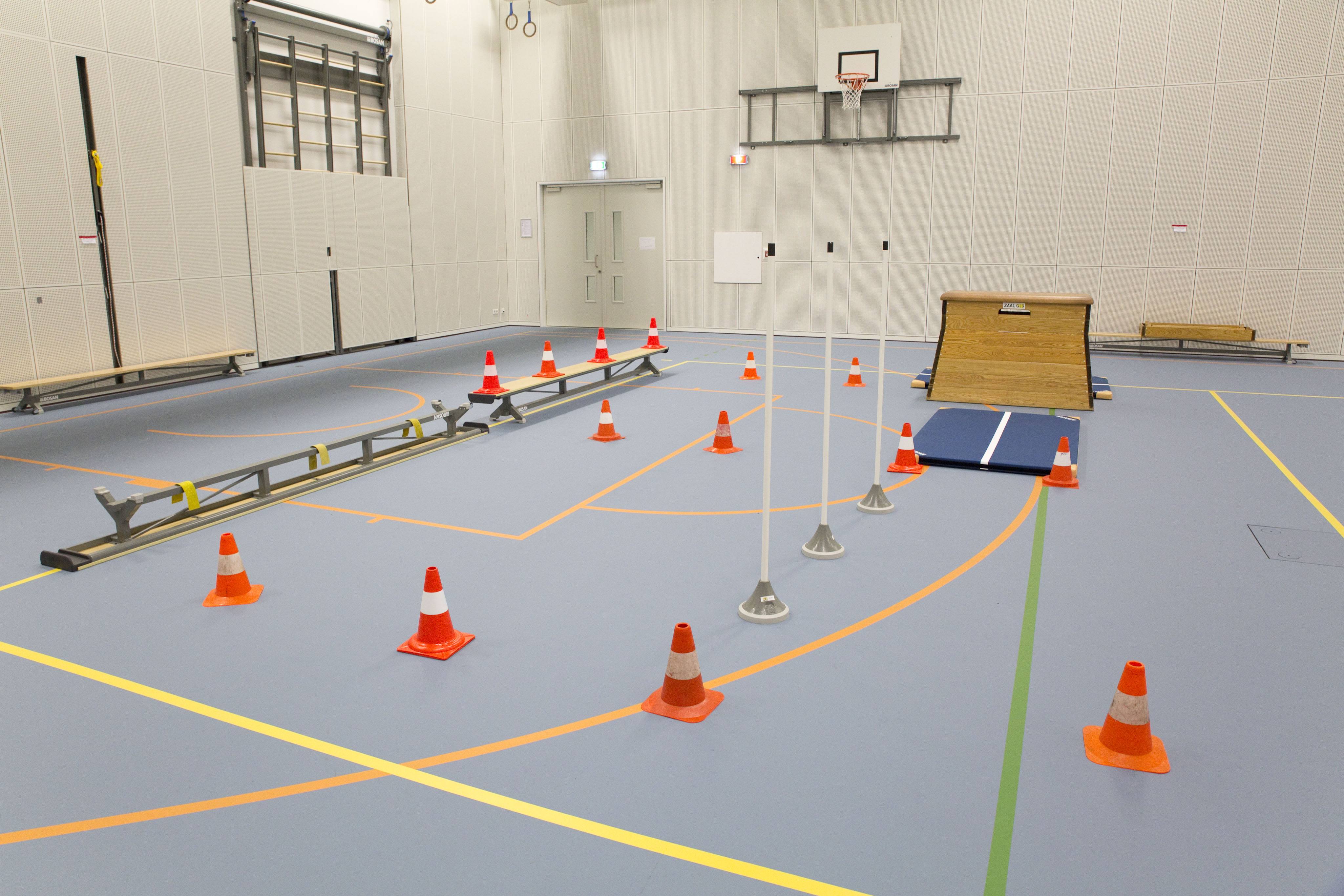A tool to objectively and periodically assess children’s motor skills level in the PE setting

Physical education (PE) teachers can play a key role in supporting children’s motor skill development. The Hague University of Applied Sciences (THUAS) developed a tool to objectively and periodically assess children’s motor skills level in the PE setting.
PE teachers are concerned about the decreased physical activity and motor skill levels of children. They expressed the need for an objective, feasible, valid and reliable assessment tool to gain insight in the motor skill competence level of children. Therefore, THUAS has developed a motor skill competence test that fits in the PE setting; the Athletic Skills Track (AST).
Developing fundamental movement skills
There are several motor skill competence tests, but most of them are not feasible for the PE setting. For example, they take half an hour per child to execute and primarily focus on identifying children with motor coordination disorders. To address those shortcomings THUAS developed an obstacle course based on the coordinative abilities of the Athletic Skills Model with her partners.
Rather than assessing isolated movements, the course consists of a series of 5 to 7 concatenated fundamental movement skills based on the concept of motor coordination (e.g. coupling, spatial orientation and balance ability). The track is constructed using equipment available in every gymnasium in The Netherlands. Children are asked to complete the track as fast as possible. Based on the time to complete the track, children are assigned into one of five motor skills levels.
Results
Several studies have shown that the AST is a feasible, valid and reliable tool to assess the motor skills of 4- to 12-year old children. In 2016, 10.000 children in the Hague region completed the AST. Both children and PE teachers are positive about the test. The AST offers PE teachers an objective measuring tool to classify children, monitor their progress, evaluate programs and compare groups, schools and neighborhoods on children’s motor skill level.
Other research projects
The project ‘Healthy by Design’ aims to develop, implement and evaluate an intervention in the social and/or physical school-environment targeting physical activity and dietary behavior of VET students.
In ‘BalanSAR’ several prototypes have been developed to help children to develop their balancing skills in a motivating way adding augmented reality to equipment available in every gymnasium.
Contact Research Group Healthy Lifestyle in a Supporting Environment
The Hague University of Applied Sciences (THUAS)
www.dehaagsehogeschool.nl/onderzoek/lectoraten/gezonde-leefstijl-in-een-stimulerende-omgeving
Professor Sanne de Vries
E-mail: s.i.devries@hhs.nl
Telephone: +31 (0)70 445 7417

